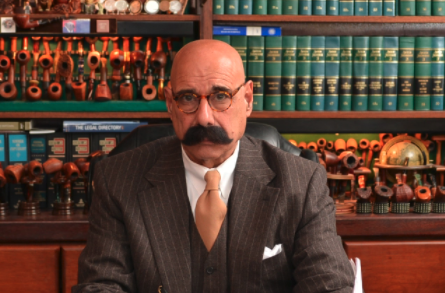 Lourdes Sanchez Ridge, partner at Pietragallo Gordon Alfano Bosick & Raspanti. Courtesy photo
Lourdes Sanchez Ridge, partner at Pietragallo Gordon Alfano Bosick & Raspanti. Courtesy photo Supreme Court Just Made a Prosecutor's Job More Difficult: The Impact of 'Ruan'
This article explains the Supreme Court's decision and focuses on the ramifications as it pertains to other criminal statutes. It also raises questions regarding the reasonableness standards of the exclusionary rule under United States v. Leon.
July 20, 2022 at 10:29 AM
8 minute read
On June 27, the U.S. Supreme Court expanded the scope of the government's burden of proof of a defendant's mental state, or mens rea. The Supreme Court held that in a statute that provided an exception or exemption to prosecution, that is a clause stating "except as authorized," the government must now prove beyond a reasonable doubt that a defendant knew that he did not fall within the scope of that exception. Although the case related to a federal criminal statute prohibiting the dispensing or distribution of controlled substances by a physician, the ruling can be applied to myriad criminal statutes that carve out exceptions or exemptions to prosecution. This article explains the Supreme Court's decision and focuses on the ramifications as it pertains to other criminal statutes. It also raises questions regarding the reasonableness standards of the exclusionary rule under United States v. Leon, 468 U.S. 897 (1984).
This content has been archived. It is available through our partners, LexisNexis® and Bloomberg Law.
To view this content, please continue to their sites.
Not a Lexis Subscriber?
Subscribe Now
Not a Bloomberg Law Subscriber?
Subscribe Now
NOT FOR REPRINT
© 2024 ALM Global, LLC, All Rights Reserved. Request academic re-use from www.copyright.com. All other uses, submit a request to [email protected]. For more information visit Asset & Logo Licensing.
You Might Like
View All


Law Firms Mentioned
Trending Stories
- 1Luigi Mangione's Attorney Gives a Master Class in How Not to Handle a High-Profile Case in the Media
- 2Trump, ABC News Settlement in Defamation Lawsuit Includes $1M in Attorney Fees For President-Elect
- 3Trump, ABC News Settle Defamation Lawsuit Before Depositions
- 4Call for Nominations: The Recorder and Law.com's California Legal Awards 2025
- 5The Week in Data Dec. 13: A Look at Legal Industry Trends by the Numbers
Who Got The Work
Michael G. Bongiorno, Andrew Scott Dulberg and Elizabeth E. Driscoll from Wilmer Cutler Pickering Hale and Dorr have stepped in to represent Symbotic Inc., an A.I.-enabled technology platform that focuses on increasing supply chain efficiency, and other defendants in a pending shareholder derivative lawsuit. The case, filed Oct. 2 in Massachusetts District Court by the Brown Law Firm on behalf of Stephen Austen, accuses certain officers and directors of misleading investors in regard to Symbotic's potential for margin growth by failing to disclose that the company was not equipped to timely deploy its systems or manage expenses through project delays. The case, assigned to U.S. District Judge Nathaniel M. Gorton, is 1:24-cv-12522, Austen v. Cohen et al.
Who Got The Work
Edmund Polubinski and Marie Killmond of Davis Polk & Wardwell have entered appearances for data platform software development company MongoDB and other defendants in a pending shareholder derivative lawsuit. The action, filed Oct. 7 in New York Southern District Court by the Brown Law Firm, accuses the company's directors and/or officers of falsely expressing confidence in the company’s restructuring of its sales incentive plan and downplaying the severity of decreases in its upfront commitments. The case is 1:24-cv-07594, Roy v. Ittycheria et al.
Who Got The Work
Amy O. Bruchs and Kurt F. Ellison of Michael Best & Friedrich have entered appearances for Epic Systems Corp. in a pending employment discrimination lawsuit. The suit was filed Sept. 7 in Wisconsin Western District Court by Levine Eisberner LLC and Siri & Glimstad on behalf of a project manager who claims that he was wrongfully terminated after applying for a religious exemption to the defendant's COVID-19 vaccine mandate. The case, assigned to U.S. Magistrate Judge Anita Marie Boor, is 3:24-cv-00630, Secker, Nathan v. Epic Systems Corporation.
Who Got The Work
David X. Sullivan, Thomas J. Finn and Gregory A. Hall from McCarter & English have entered appearances for Sunrun Installation Services in a pending civil rights lawsuit. The complaint was filed Sept. 4 in Connecticut District Court by attorney Robert M. Berke on behalf of former employee George Edward Steins, who was arrested and charged with employing an unregistered home improvement salesperson. The complaint alleges that had Sunrun informed the Connecticut Department of Consumer Protection that the plaintiff's employment had ended in 2017 and that he no longer held Sunrun's home improvement contractor license, he would not have been hit with charges, which were dismissed in May 2024. The case, assigned to U.S. District Judge Jeffrey A. Meyer, is 3:24-cv-01423, Steins v. Sunrun, Inc. et al.
Who Got The Work
Greenberg Traurig shareholder Joshua L. Raskin has entered an appearance for boohoo.com UK Ltd. in a pending patent infringement lawsuit. The suit, filed Sept. 3 in Texas Eastern District Court by Rozier Hardt McDonough on behalf of Alto Dynamics, asserts five patents related to an online shopping platform. The case, assigned to U.S. District Judge Rodney Gilstrap, is 2:24-cv-00719, Alto Dynamics, LLC v. boohoo.com UK Limited.
Featured Firms
Law Offices of Gary Martin Hays & Associates, P.C.
(470) 294-1674
Law Offices of Mark E. Salomone
(857) 444-6468
Smith & Hassler
(713) 739-1250






